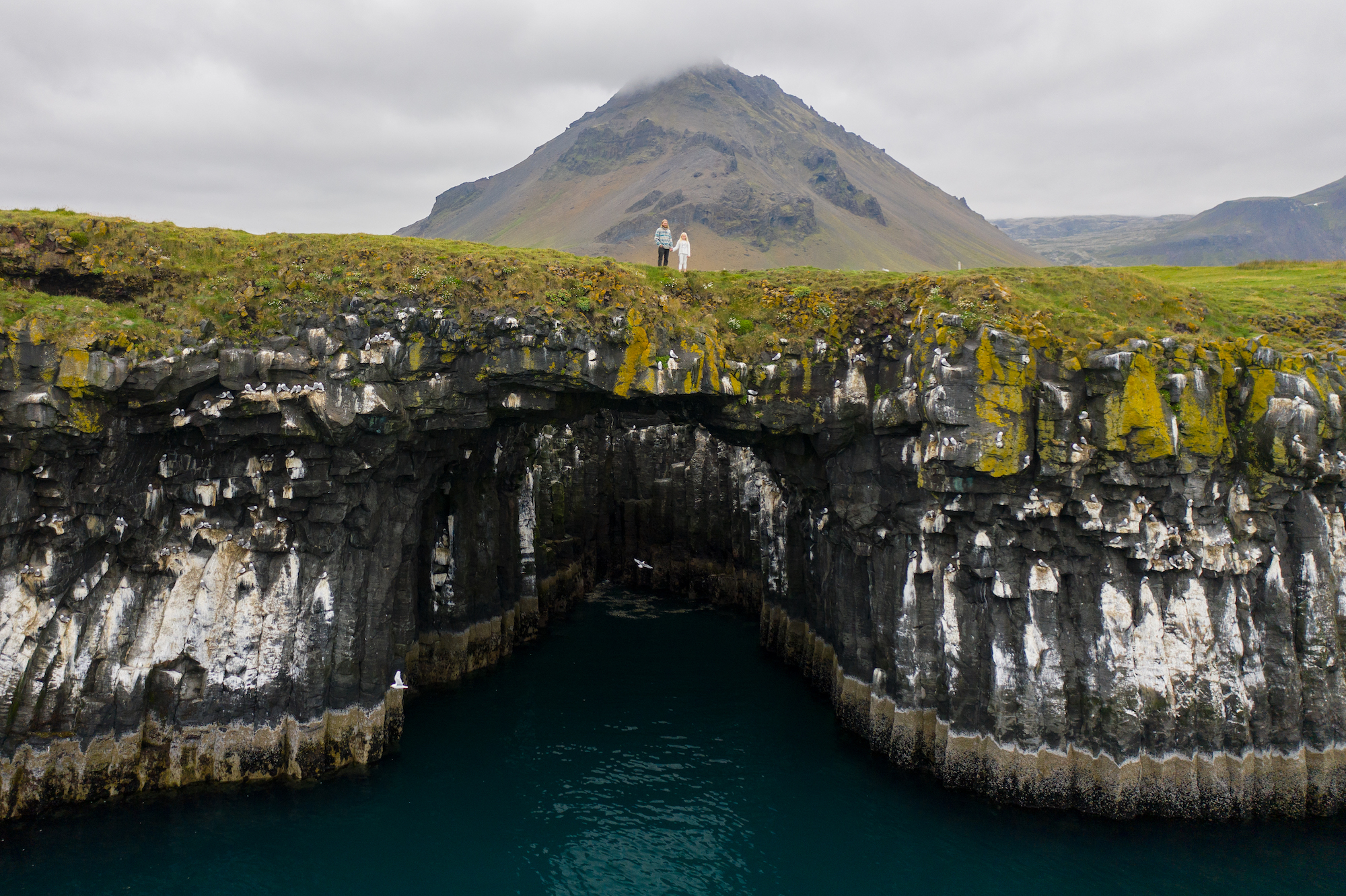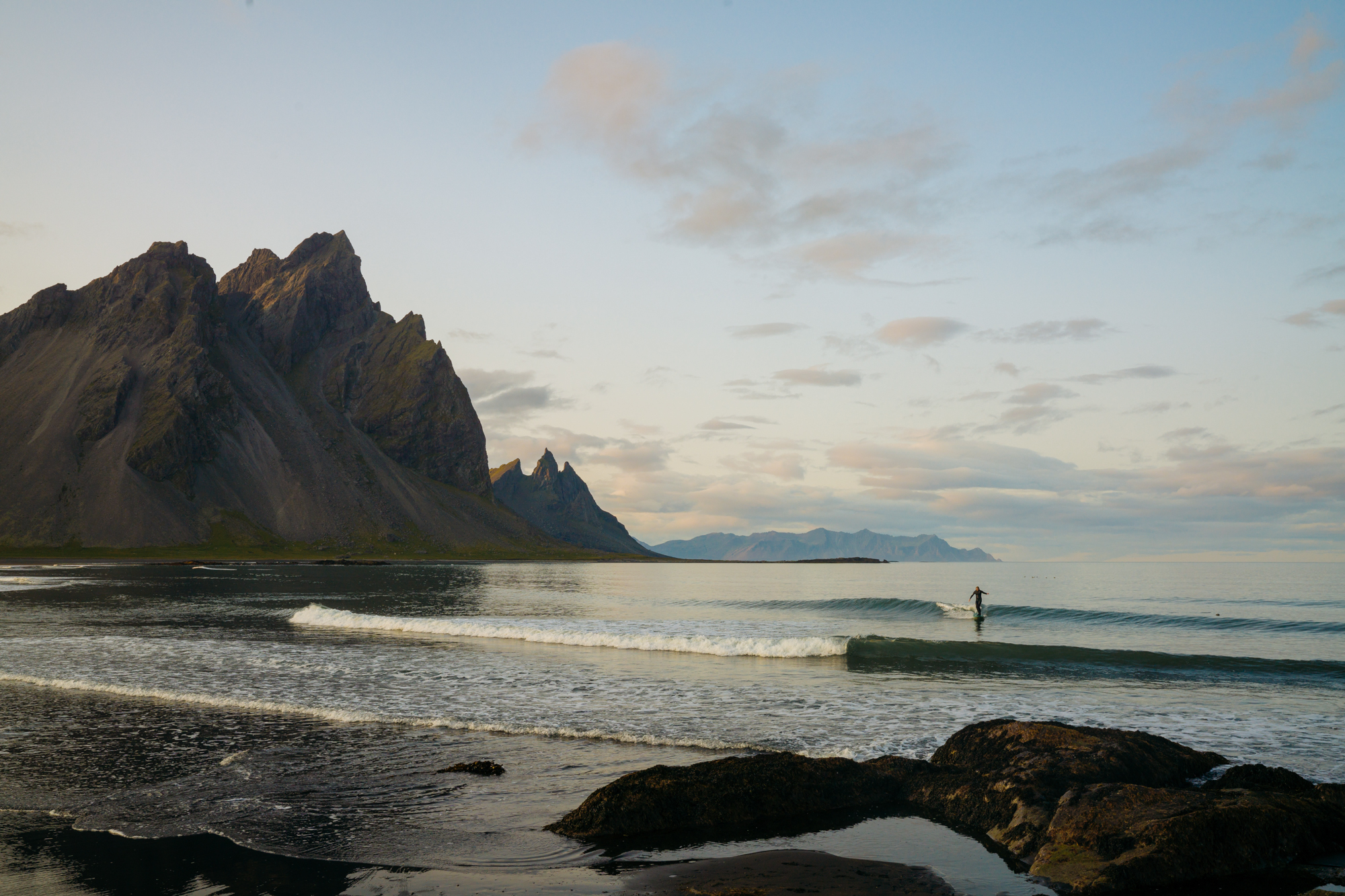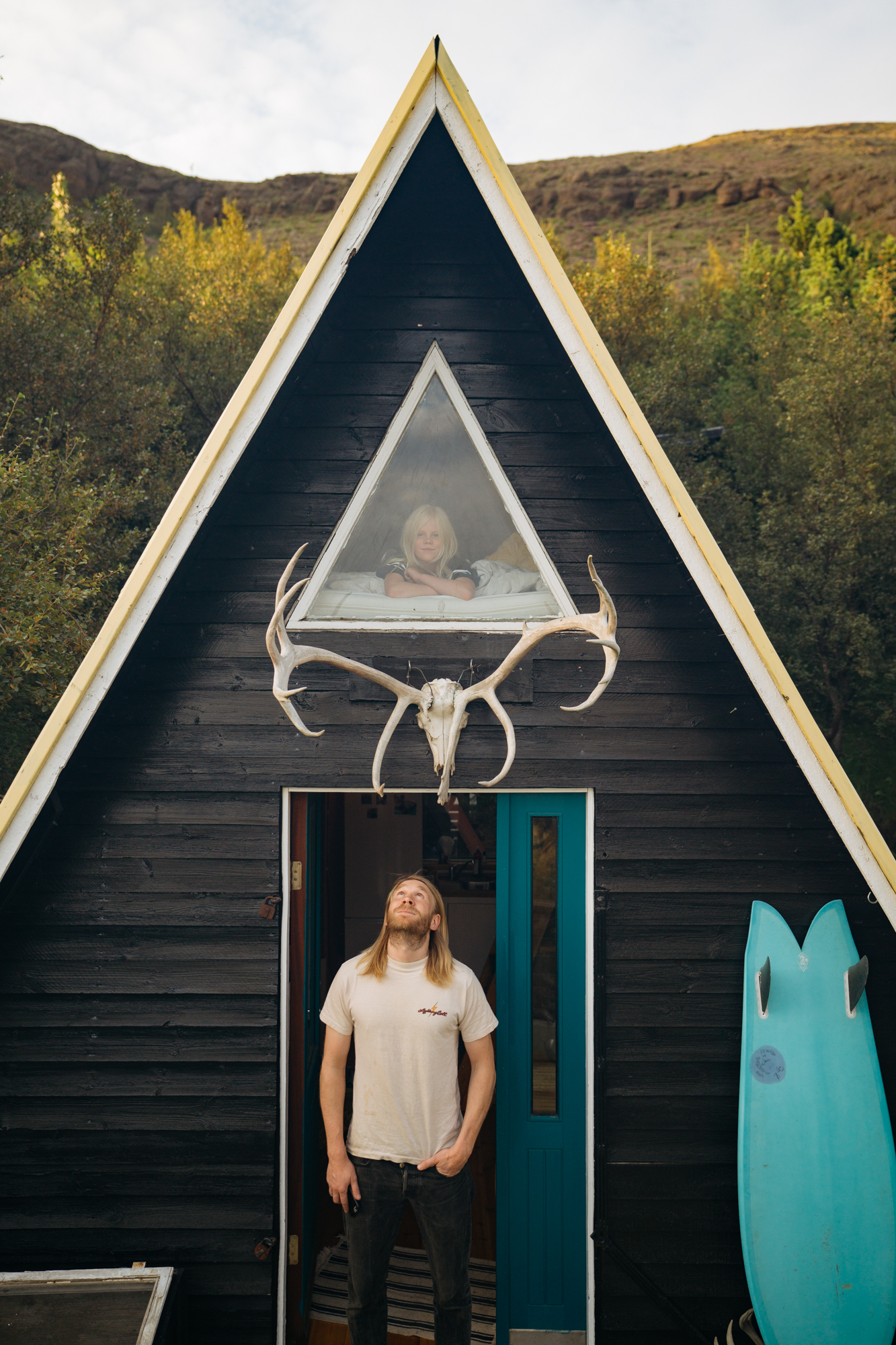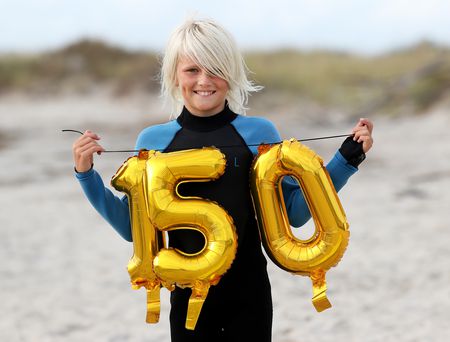Elli Thor was trapped. He had paddled his kayak off a waterfall in Iceland and, upon landing in the river below, he became stuck beneath the water. It didn’t look good.
“I just remember holding my breath, my heart pounding in my head,” said Thor. “Then, just before I passed out, there was a strange good feeling in my whole body…it’s hard to talk about. I washed up where the river spread out and I just remember gaining consciousness. I avoided thinking about that day for a long time.”
Since his near-death incident, Thor has swapped his kayak paddle for a quiver of eclectic surfboards. Plus, he has another priority keeping him away from waterfalls and fast-moving water: his daughter, Unnur. And a new film of the same name from iconic photographer Chris Burkard chronicles Thor’s new lease on life, his love for surfing the frigid waters of his homeland, and his endearing relationship with Unnur.
You can check out the trailer below, and after that, keep scrolling for a chat with Burkard about the project.
What drew you to this project, and Elli and Unnur’s story, originally?
I had met Elli maybe six or seven years prior on a surf trip to Iceland. I was enthralled by his commitment to surfing in these super cold-water places. We became really close friends. And every trip that I would go there, I would start to realize that it’s really the locals that make the experience so rich and rewarding.
Through that friendship, things evolved. One day, he told me his story about his childhood, this story about how he almost died and how that changed his trajectory, and how he struggles with that as a dad. My wheels were turning with empathy, but also from a storytelling perspective. That was the catalyst for this project. I realized that these are things that a lot of people deal with – balancing risk and reward, and the sacrifices that come with something like having a kid.

Elli Thor and his daughter, Unnur, atop an oceanside volcanic arch in Iceland. After walking away from kayaking, a newfound passion for surfing and the birth of his daughter gave Elli a new perspective worth living for. Photo: Chris Burkard
You’ve spent a lot of time in Iceland in your career; what keeps you coming back?
Iceland was super significant to me early on. In many ways, it opened my eyes to exploring cold-water environments. It forced me to wonder, ‘what else is out there?’ I went there maybe twelve years ago, and I had been shooting all these warm-water destinations. I didn’t find what I was looking for in those places, which was a sense of adventure. I was traveling to these touristy places, which, on the pages of magazines looked amazing. But really you were staying in this high-rise hotel with Wi-Fi and fine dining. So, in Iceland, it was a really different experience, and I fell in love with that.
Tell us about Elli’s story a bit – from daredevil kayaker to cruise-y surfer to loving father.
He grew up in the outdoors, as many Icelanders do. They spend their childhoods in these cool, rugged environments. And if you raise your kids in the outdoors, they’re going to take risks. That’s going to become part of their life. That’s what happened with him – he kayaked all over the world, in Nepal, in the Philippines, etcetera. Ultimately, it resulted in this near-death experience getting caught behind the curtain of a waterfall. That moment made him question everything going on in his life.
After that, he hadn’t returned to the water – in any form – for a really long time. So, his introduction to surfing was what healed that wound. That’s the moral of the story – that the ocean is this incredibly healing source that brought him peace in his life again. He wants to raise his daughter in the way that she finds these same experiences. And yet, there’s always a fear of giving them too much freedom and having something bad happen. The film shows that struggle of not having the answers, but trying to figure it out.

Elli Thor and a classically surreal Icelandic surf spot. Photo: Chris Burkard
They surf a couple different waves in the film – how does being a surfer in Iceland differ from the rest of the world?
People have this concept that it’s a really difficult thing to do in Iceland. But the reality is that the wetsuit technology is so good nowadays. Maybe 10 years ago, it took a monk-level of commitment. Almost every session I’ve been out there, I’ve had to let water into my suit because I’ve been so warm.
The harder part is just knowing where to go. It takes years of experience. Those guys are so dedicated to it. And not just in the summer. They’re out there in the winter when the lineups thin out, and the core audience thrives. They’re surfing in freezing conditions and driving across the country to chase storms. You don’t have that level of commitment in places like California. I’ve always loved that aspect of the culture there.
The feather is a continued symbol in the film. Was that intentional or did it just sorta happen?
As a filmmaking technique, you try to have these tokens that you carry through the film. They help you represent certain feelings without saying them. Not to compare our film to this, but if you watch Inception, there’s the spinning top. That represents his kids. So, in our film, the feather reminds him of his kid. Even when he leaves, when he has to pursue this career that takes him away, his daughter is always on his mind. That’s a burden that a lot of people, myself included, have to bear. And I think that’s why I felt so connected to this story. I understand the level of commitment that a life like this takes.

Elli Thor and Unnur in their remote surf shack. Photo: Chris Burkard
This project is a bit different than your past work – it’s a film, it’s a human-interest story; versus photography or focusing on natural beauty. What made you go this route?
As much as I love telling a classic surf adventure story, at a certain point you have to grow up. [Laughs.] You have to realize that the ocean, although a great place for fun, is also a tool for learning and healing and dealing with intense issues. It’s been that for me and a lot of people I care about. As someone who wants to evolve as a human, I want to address these other things that I struggle with. That’s why, as a filmmaker, you pick subjects that you relate to.
And, when you’re going to these places, you start to realize there’s bigger stories to be told. Yeah, there’s the waves. But there’s also human stories, emotional stories, stories about challenges. That’s what makes a culture so unique. It’s not just because there’s waves and you can surf there. That happens all over the world and that’s been done before.
Do you foresee more projects like this in your future?
Absolutely. I’ve got a number of projects that are in the same realm. I just released a film with some close friends called, From Kurils With Love. It’s an environmental piece about the Kuril Islands off Russia, and the fight to protect the steller seal population. And we’re releasing a handful of other projects – some are just a classic surf trip, which don’t venture too far beyond the fun. Ultimately, I think anything I put out these days, I want there to be a conversation. I want it to be something more than surf porn. It’s a natural evolution to be conveying these deeper messages.





Recent Comments